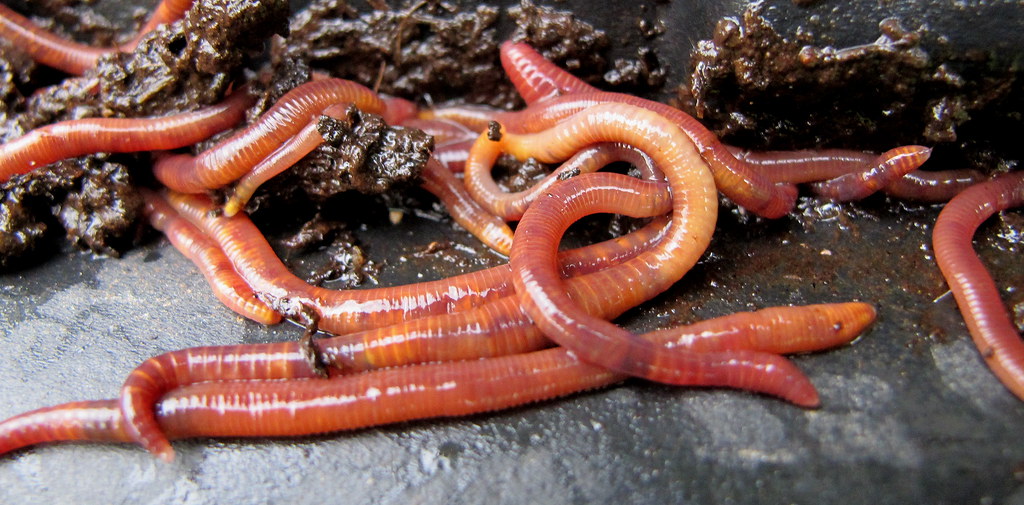In the enchanting world of composting, there exists a hidden hero that tirelessly toils beneath the surface – the humble worm. Beyond their reputation as squirmy creatures, worms play a pivotal role in the intricate dance of nature, orchestrating a harmonious symphony of decay and rebirth. These wriggling wonders, also known as “nature’s engineers,” work their magic within compost piles, transforming kitchen scraps and yard waste into dark, nutrient-rich humus. But their role extends far beyond composting; these small but mighty creatures hold the key to soil health, enriching it with essential nutrients and improving its structure. So let us dive deep into the intricacies of the worm’s role in composting and soil health, and discover the transformative powers they possess to reignite the vitality of our land.

1. Nurturing Underground Ecosystems: Unraveling the Multifaceted Role of Worms in Composting and Soil Health

Worms, those humble creatures that wriggle beneath our feet, hold within them a world of hidden wonders. They are not merely composting agents but integral players in nurturing underground ecosystems. These soil-dwelling superheroes play multiple roles, contributing to the overall health of our precious earth. Let’s explore the fascinating contributions worms make to composting and soil health:
- Soil Aeration: Worms tirelessly burrow through the soil, creating passageways that allow air and water to circulate, facilitating better root growth for plants.
- Compost Production: As worms consume organic waste, they break it down into nutrient-rich castings, enriching the soil and creating an ideal environment for plant growth.
- Nutrient Cycling: Worms eat decaying plant material and release it in the form of worm castings, effectively recycling essential nutrients back into the soil.
- Improving Soil Structure: The constant movement of worms helps to loosen compacted soil, improving its drainage, and enhancing the overall physical structure.
- Building Microbial Communities: Worms transport beneficial microbes as they move through the soil, contributing to the diverse and thriving underground ecosystem.
Next time you spot a humble earthworm, appreciate the vital role it plays in fostering healthy compost and soil. These unsung heroes are nature’s guardians of plant growth. Embrace and preserve these remarkable creatures so that our soils continue to flourish.
2. Cultivating Nature’s Tiny Gardeners: Expert Tips to Leverage Worms for Optimal Composting and Soil Enrichment

Looking to take your composting and soil enrichment to the next level? Harnessing the power of worms might just be the secret ingredient you’ve been missing. These tiny gardeners work tirelessly underground, breaking down organic matter into nutrient-rich castings. Here are some expert tips to leverage worms for optimal composting and soil enrichment:
- Choose the right type of worms, such as red wigglers or nightcrawlers, that thrive in compost bins.
- Provide a cozy home for your worms with a well-ventilated composting bin or vermiculture system.
- Feed your worms a balanced diet of food scraps, coffee grounds, and shredded paper to keep them happy and productive.
- Avoid adding meats, dairy products, and oily foods that can attract pests and create odors.
- Keep your worm bin moist, but not soggy, by regularly adding moistened bedding materials like shredded newspaper or coconut coir.
- Avoid overfeeding your worms – they can only eat so much in a day!
- Harvest the nutrient-rich worm castings when they are dark and crumbly, and use them to enrich your garden soil or create compost tea.
By embracing these tips, you’ll be able to tap into the incredible power of nature’s tiny gardeners and witness the transformative effects on your compost and soil quality!
In Retrospect about The Role of Worms in Composting and Soil Health.
As we delve deeper into the world beneath our feet, the importance of worms in composting and soil health becomes abundantly clear. These seemingly unassuming creatures, hailed as nature’s tiny gardeners, play a pivotal role in the intricate web of life beneath the surface. Their tireless efforts transform decaying matter into nutrient-rich humus, supplying our plants with the sustenance they need to thrive.
Through their diligent tunneling, worms aerate the soil, allowing it to breathe and promoting optimal water drainage. This not only prevents the formation of compacted soil but also enhances root growth and nutrient absorption. Moreover, their castings, commonly known as worm poop, release vital nutrients like nitrogen, phosphorus, and potassium, revitalizing the earth and boosting crop yields.
But the impact of worms extends beyond just composting. These little warriors are natural soil engineers, aiding in the prevention of erosion and the restoration of damaged land. As they wiggle their way through the soil, they create channels and burrows, improving its structure, enhancing water infiltration, and preventing runoff. Their undeterred dedication to soil health paves the way for resilient and sustainable ecosystems.
Not only do worms possess incredible ecological benefits, but their presence also brings immense joy to those who value the wonders of the natural world. From curious children who marvel at their squirming bodies to avid gardeners who recognize their significant contributions, worms have a way of captivating our hearts and nourishing our souls.
So, let us embrace the humble worm and celebrate its unsung role in composting and soil health. Let us invite these remarkable creatures into our homes and gardens, providing them with a nurturing environment where they can thrive. Through our collective efforts, we can unlock the potential of these mighty minibeasts and create a world where sustainable agriculture and thriving ecosystems harmoniously coexist.
In the grand symphony of life, these enchanting beings strike a melodious chord, reminding us that even the smallest of creatures can inspire greatness. So let us pay homage to the worms, the unsung heroes of composting and soil health.
